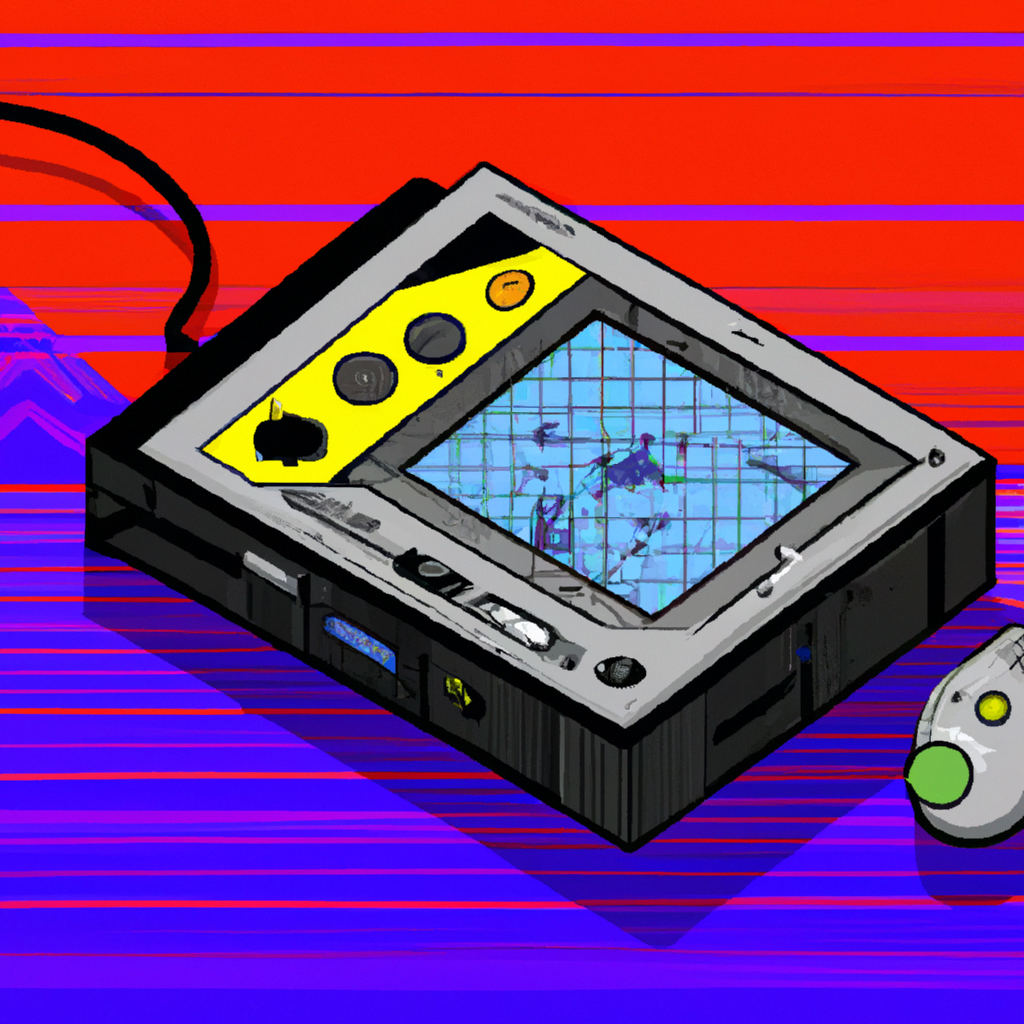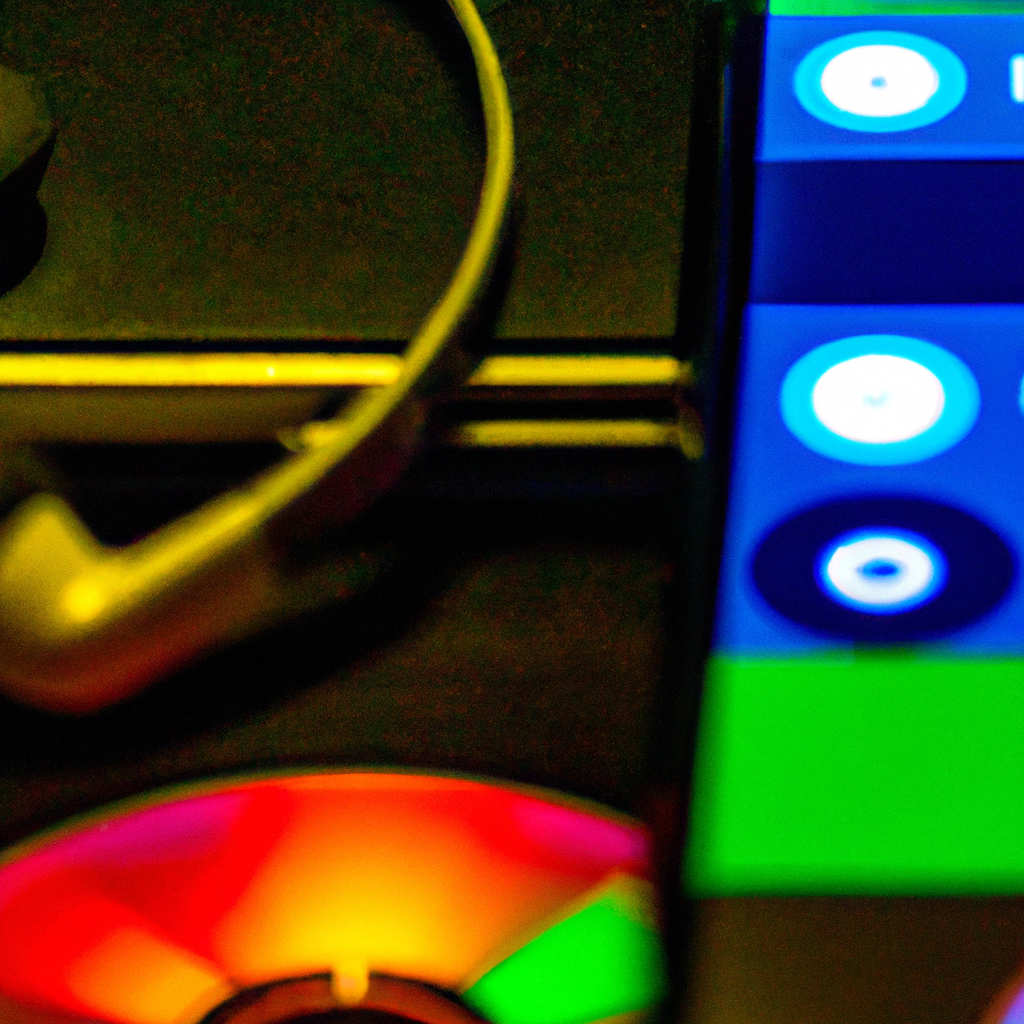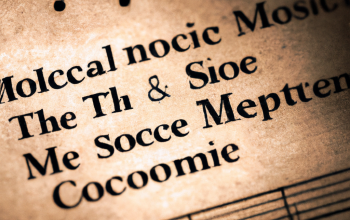In a realm where pixels morph into fantastical landscapes, heroes slay dragons with a swift stroke of their digital swords, and emotions surge through electrifying battles, there exists an intangible force that transcends the mere boundaries of pixels and polygons. It is a force that weaves its way into our very souls, igniting our imaginations and turning mere moments into lasting memories. This enchanting power is none other than game music, an unsung hero that often goes unnoticed, yet can effortlessly transport us from the ordinary to the extraordinary. From the humble bleeps and blips of 8-bit tunes to grand symphonies that accompany epic quests, join us on a journey as we explore the remarkable ways in which music immerses us, elevates our experiences, and enhances the ever-evolving realm of gaming.

The Transformative Role of Game Music: Elevating Virtual Worlds with Melodic Wonders
Game music has come a long way since its humble beginnings. No longer just a background noise, it has evolved into an integral component that elevates virtual worlds to new heights. With its melodic wonders, game music has the power to transport players to another dimension, immersing them fully in the gaming experience.
One of the transformative roles of game music is its ability to set the tone and atmosphere of a virtual world. From suspenseful orchestral arrangements, to upbeat electronic beats, game music can instantly evoke emotions and create an immersive environment. It captures the essence of the game’s narrative, enhancing the player’s emotional connection to the story and characters. The right music can make a simple task feel epic, intensify a battle, or even bring tears to your eyes during a poignant moment.
- Creating Dynamic Soundscapes: Game music has the power to dynamically adapt to the player’s actions, making the virtual world feel alive. As players explore different areas or engage in different activities, the music seamlessly shifts to match the mood and environment. This dynamic soundscape enhances the sense of presence and realism, making the virtual world feel vibrant and responsive.
- Enhancing Gameplay: Apart from setting the right atmosphere, game music can also have a direct impact on gameplay. Specific musical cues can alert players to danger, signal puzzle-solving opportunities, or provide hints and guidance for progression. These sonic hints merge with visual cues, elevating the overall gaming experience and ensuring players stay engaged and fully immersed.
- Fostering Emotional Connection: Game music has the unique ability to evoke emotions, just like a great film score. When the right melody accompanies a climactic moment or a heartwarming scene, players can feel joy, sorrow, or excitement on a deeper level. This emotional connection cements the player’s attachment to the virtual world, leaving a lasting impression long after the game is turned off.

Unleashing Nostalgia: How 8-Bit Sounds Create Timeless Gaming Memories
When we think of classic video games, one of the first things that comes to mind is the iconic sound of 8-bit music. These simple but catchy tunes have the power to transport us back in time and evoke a wave of nostalgia. Whether it’s the cheerful melodies of Super Mario Bros. or the eerie sounds of The Legend of Zelda, 8-bit music has become synonymous with timeless gaming memories.
One of the main reasons why 8-bit sounds have such staying power is their unique simplicity. In an era where technological limitations restricted composers to working with only a few sound channels, they had to be incredibly creative in order to produce memorable melodies. These chiptune compositions are often characterized by energetic square waves and distinctive blips and bloops, creating a distinct and instantly recognizable sound. The limited range of melodies and harmonies meant that composers had to focus on creating catchy hooks and memorable themes, which only served to reinforce the staying power of these tunes in our memories.
Epic Symphonies and Emotional Journeys: Exploring the Emotional Impact of Game Music
Game music has come a long way since the days of simple bleeps and bloops. Today, video game soundtracks have evolved into epic symphonies that take players on emotional journeys. One of the most remarkable aspects of game music is how it has the power to evoke a wide range of emotions, from nostalgia to excitement, from joy to sorrow.
The emotional impact of game music can be attributed to several factors. First and foremost, composers use a variety of musical techniques to create immersive and captivating scores. The use of dynamic melodies, powerful harmonies, and intricate layers of instrumentation help to transport players into the game’s world, eliciting a strong emotional response. Additionally, game music often employs leitmotifs, recurring musical themes that are associated with specific characters, locations, or events. These leitmotifs not only aid in storytelling but also tug at the heartstrings, triggering memories and feelings associated with particular moments in the game.
Enhancing Gameplay: Practical Tips for Choosing and Utilizing Game Music
When it comes to creating a truly immersive gaming experience, music plays a crucial role in setting the tone, enhancing emotions, and drawing players deeper into the virtual world. Whether you’re a game developer or a player looking to enhance your gameplay, here are some practical tips to help you choose and utilize game music effectively.
1. Understand the Game’s Genre and Theme: Begin by considering the genre and theme of your game. Is it an action-packed adventure? A mysterious puzzle-solving challenge? An epic fantasy quest? By understanding the core elements of your game, you can choose music that complements and enhances the overall experience.
2. Pay Attention to Tempo and Rhythm: The tempo and rhythm of the music can greatly impact gameplay. For fast-paced action sequences, opt for high-energy tracks with a quick tempo to create a sense of urgency. In contrast, slower rhythms can be ideal for more relaxed or atmospheric moments, allowing players to contemplate and immerse themselves in the game world.
The Way Forward
As we conclude this melodious journey through the world of game music, it becomes evident that its power goes beyond mere entertainment. From the nostalgic chiptunes of the 8-bit era to the grand symphonies of today, game music has evolved to become an integral part of the gaming experience.
Its ability to transport us to otherworldly realms, stir up emotions, and heighten the intensity of gameplay cannot be underestimated. The carefully composed melodies and harmonies have the remarkable ability to tap into our subconscious, immersing us deeper into the virtual worlds we explore.
Through the simplicity of 8-bit sounds, we were able to feel the thrill of defeat and the joy of victory. The repeated loops of those catchy tunes imprinted themselves in our minds, forever associated with the memories of countless hours spent in pixelated realms.
But as technology advanced, so did the artistry of game music. Today, we indulge in orchestral scores that rival those heard in the most prestigious concert halls of the world. With the addition of live recordings, the emotional range of game soundtracks has expanded exponentially. Sonic narratives now unfold through musical storytelling, effortlessly guiding us through epic battles, tender moments, and heart-pounding escapes.
More than simply serving as a backdrop, game music has become a character in its own right, contributing to the overall narrative and enriching the gaming experience. It has the remarkable ability to make us feel both vulnerable and invincible, and as we traverse the digital landscapes, it is the beat of our hearts and the harmony that resonates within.
So, the next time you pick up a controller, take a moment to appreciate the symphony that awaits. Pause and listen as the notes wash over you, blending seamlessly with the graphics and gameplay. Allow yourself to be swept away by the melodies, for in that moment, you become the conductor of your own virtual symphony. And remember, the power of game music will forever enhance the magic that lies within our gaming experiences.
Game soundtracks have evolved dramatically over the decades, with early 8-bit tunes eventually giving way to complex symphonies. Not only are these soundtracks now becoming works of art in their own right, but the music has become integral to enhancing the gaming experience.
Before the days of enhanced sound capabilities, basic sound effects and chiptune-style melodies served as vital components of gameplay. These simple 8-bit sounds gave birth to an iconic style of music associated with video games. It has since become such a defining feature of the medium that it has inspired a wide array of genres, such as synthwave, chiptune, and vaporwave.
As video game technology has advanced, so too have its soundtracks. Thanks to the emergence of gaming consoles capable of producing higher quality audio, soundtracks have become increasingly sophisticated and complex. Of course, musical scores are nothing new, but video game music has taken them to the next level.
The soundtrack of a game has become an essential component of the narrative. It helps to set the mood of the game and cue specific emotions. Certain sounds can even help to influence player behavior in subtle but important ways. For example, the sound of a ticking clock in an adventure game may serve to create a sense of urgency that motivates the player to keep pressing forward.
In addition, certain musical cues can signal the presence of enemies or alert the player to danger. Moreover, the soundtrack may serve to convey the themes and tone of the game, such as in the brooding melodies of Dark Souls or the cheery vibes of Super Mario.
So it’s clear that game music has come a long way in terms of both quality and function. While there is still room for further improvement, it is undeniable that the power of game music is an integral part of what makes video games so special. From its beginnings as 8-bit beeps and boops to the soaring symphonies of today, there is no doubt that game music will continue to be a key component of the gaming experience for many years to come.



